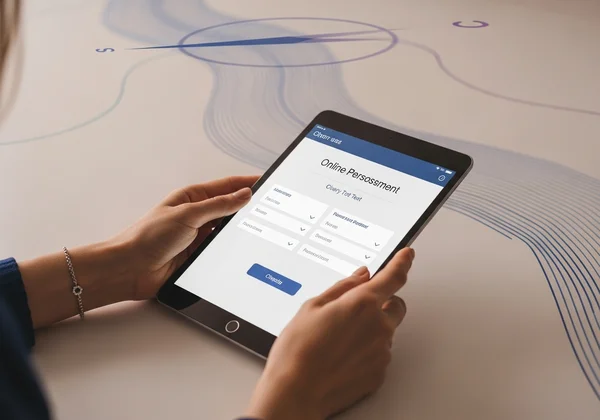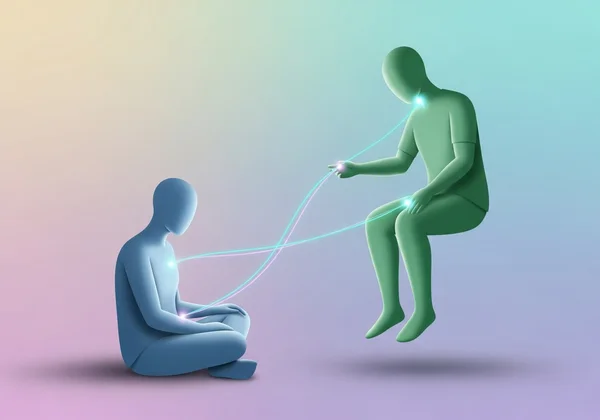NPD 테스트 결과: 평가 후 다음 단계
July 13, 2025 | By Clara Jennings
우리 플랫폼에서 NPD 테스트 를 막 완료하셨나요? 결과 점수가 무엇을 의미하는지, 그리고 앞으로 무엇을 해야 할지 궁금하실 것입니다. 자기애성 성격 장애와 관련된 특성을 탐색한 후 호기심과 약간의 불안감이 뒤섞인 감정을 느끼는 것은 흔한 일입니다. 저는 자기애성 인격 장애인가요? 이 가이드는 여러분의 결과를 이해하고, 그 의미를 해석하며, 자기 성찰이나 전문가의 도움을 통해 앞으로 나아갈 길을 찾는 데 도움을 줄 것입니다. 자기 이해를 위한 여정은 여기서부터 시작됩니다. 그리고 우리 플랫폼 은 기밀이 보장되고 접근 가능한 시작점을 제공하도록 설계되었습니다. 무료이며 기밀이 보장되는 도구를 탐색하려면 언제든지 홈페이지 방문 을 환영합니다.

NPD 테스트 결과 해석
우리의 기밀 NPD 테스트 와 같은 온라인 평가를 받는 것은 자기 인식 을 향한 적극적인 단계입니다. NPD 테스트 결과 해석 을 이해하는 것은 매우 중요하지만, 도구의 목적을 기억하는 것 또한 똑같이 중요합니다.
점수 이해하기: 숫자가 의미할 수 있는 것
NPD 성격 테스트 를 완료하면 점수를 받게 됩니다. 이 점수는 확정적인 진단이 아니라 지표입니다. 이를 나침반의 한 방향이라고 생각하시면 됩니다. DSM5TR(정신 질환 진단 및 통계 편람, 제5판, 개정판)에 명시된 특정 자기애적 특성에 어느 정도 공감하는지를 나타냅니다. 높은 점수는 이러한 특성이 더 많이 존재함을 시사하며, 특정 행동과 사고 패턴을 면밀히 검토하도록 유도할 수 있습니다. 반대로 낮은 점수는 안심을 줄 수 있지만, 자기애적 경향이 전혀 없다는 의미는 아닙니다. 인간의 성격은 훨씬 더 복잡하고 미묘하기 때문입니다. 저희 시스템은 여러분의 발견 여정 을 시작하는 데 도움이 되는 예비 통찰력을 제공합니다.
선별 도구 대 공식 진단: 목적 명확화
한 가지 중요한 차이점을 명확히 짚고 넘어가겠습니다. 이 테스트 는 예비 NPD 선별 도구 입니다. 이는 잠재적인 특성을 탐색하는 데 도움이 되도록 설계된 초기 평가 역할을 한다는 것을 의미합니다. 자격을 갖춘 정신 건강 전문가가 실시하는 공식 NPD 테스트 를 대체할 수 없으며, 대체해서도 안 됩니다. 자기애성 성격 장애의 공식 진단은 포괄적인 임상 평가가 필요합니다. 저희 플랫폼은 확립된 심리학적 기준에 기반한 과학적이고 신뢰할 수 있는 시작점을 제공함으로써 책임감을 강조합니다. 저희 접근 방식에 대한 더 깊은 이해를 위해 저희 플랫폼 개요 에서 제공되는 포괄적인 정보를 검토해 보시기 바랍니다.
다음 단계: 자기 성찰을 위한 실행 가능한 경로
잠재적인 자기애적 특성을 발견하는 것은 변화를 위한 강력한 촉매제가 될 수 있습니다. NPD 테스트 결과 를 검토한 후에는 다음과 같이 질문할 수 있습니다: 나는 자기애성 인격 장애인가? 다음 단계는 무엇인가? 자기 성찰 NPD 를 위해 취할 수 있는 몇 가지 실행 가능한 경로가 있습니다.
AI 기반 맞춤 보고서로 더 깊이 탐구하기
저희가 제공하는 가장 가치 있는 리소스 중 하나는 AI 기반 맞춤 분석 보고서입니다. 초기 무료 NPD 테스트 는 점수를 제공하지만, 이 선택적 보고서는 훨씬 더 깊이 있는 정보를 제공합니다. 결과에 대한 자세한 분석을 제공하여 여러분의 고유한 강점, 어려움, 그리고 자기애적 특성이 나타날 수 있는 특정 영역에 대한 맞춤형 통찰력을 제공합니다. 이 보고서는 거울 역할을 하여 여러분이 이전에는 알아차리지 못했던 패턴을 보게 하고 자기 개선 방법을 구체적으로 제안합니다. 이는 자기 인식 여정을 심화하는 중요한 단계입니다. 초기 평가를 완료한 직후 맞춤 보고서를 받아 더 깊은 통찰력 으로 가는 길을 열 수 있습니다.

실용적인 자기 성찰 연습 및 저널링 질문
AI 보고서 외에도 개인적인 자기 성찰 에 참여하는 것은 매우 통찰력 있을 수 있습니다. 저널링을 일상에 통합하는 것을 고려해 보세요. 시작하는 데 도움이 될 몇 가지 질문입니다:
- 최근 상호 작용에 대해 성찰해 보세요: 공감 능력이 부족했거나 칭찬에 대한 강한 욕구를 느꼈던 순간이 있었나요? 그것이 여러분과 다른 사람에게 어떤 느낌이었나요?
- 패턴 식별: 관계나 비판에 대한 반응에서 반복되는 주제를 발견하셨나요?
- 의도 고려: 주의나 인정을 구했던 상황에서 어떤 근본적인 필요를 충족시키려 했나요?
- 관점 취하기 연습: 다른 사람의 관점에서 상황을 상상해 보세요. 그들의 경험이 여러분과 어떻게 다를 수 있을까요?
이러한 간단한 저널링 질문 은 개인적 성장 을 촉진하고 감정과 행동을 더 깊은 수준에서 연결하는 데 도움이 될 수 있습니다. 정기적인 자기 평가는 개선할 영역을 발견하고 감성 지능을 강화하는 데 도움을 주며, 초기 NPD 확인을 통해 얻은 통찰력을 바탕으로 발전할 수 있도록 합니다.
자기애적 특성에 대한 전문가 지원을 받아야 할 때
자기 성찰은 강력하지만, 전문가의 안내가 매우 귀중해지는 때도 있습니다. 자기애적 특성에 대한 치료 를 받아야 할 때를 이해하는 것은 이 여정의 중요한 부분입니다.
정신 건강 전문가의 필요성 인식
NPD 테스트 결과에 강하게 공감하거나 관계에서 지속적으로 어려움을 겪거나 강렬한 감정적 반응을 경험하거나 다른 사람들로부터 자기중심적인 행동에 대한 피드백을 받는다면 전문가의 도움을 고려할 때일 수 있습니다. 자격을 갖춘 정신 건강 전문가는 필요한 경우 정확한 진단을 제공하고 특정 요구에 맞춘 증거 기반 전략을 제공할 수 있습니다. 그들은 특정 행동의 근원을 탐색하고 더 건강한 대처 메커니즘을 개발하며 대인 관계 기술을 개선하는 데 도움을 줄 수 있습니다. 도움을 구하는 것은 약함이 아닌 강함의 표시임을 기억하십시오. NPD 선별 도구 는 첫 번째 단계이며 최종 결정이 아닙니다.

성격 특성에 대한 치료 접근 방식 개요
인지 행동 치료(CBT)는 부정적인 사고 패턴과 행동을 식별하고 변화시키는 데 도움이 될 수 있습니다. 정신 역동 치료는 현재 행동에 기여할 수 있는 과거 경험과 무의식적 갈등을 탐색합니다. 스키마 치료는 깊이 뿌리내린 정서적 패턴과 대처 스타일에 초점을 맞춘 또 다른 접근 방식입니다. 당사 플랫폼 은 의학적 조언을 제공하거나 특정 치료사를 추천하지 않지만, 이러한 옵션을 이해하면 잠재적인 정신 건강 전문가 와 정보에 입각한 대화를 나눌 수 있습니다. 많은 분들이 자기 성찰과 전문가의 안내를 병행하는 것이 변화와 전반적인 웰빙 향상을 위한 가장 포괄적인 방법이라고 생각합니다. 자기애적 특성을 이해하는 방법에 대한 자세한 내용은 언제든지 종합 웹사이트 에서 자료를 탐색할 수 있습니다.
자기 발견의 여정은 계속됩니다
저희 사이트 에서 NPD 테스트 를 받는 것은 더 큰 자기 발견과 이해 여정의 중요한 첫걸음입니다. 결과가 자기애적 특성의 강한 존재를 나타내든 단순히 성격에 대한 호기심을 불러일으켰든 관계없이 얻은 통찰력은 귀중합니다. 이 도구는 정보를 제공하도록 설계된 과학적인 NPD 확인 인 초기 관점을 제공한다는 것을 기억하십시오.
NPD 테스트 로 촉발된 이 자기 발견 여정은 더 큰 이해의 문을 엽니다. 개인화된 AI 기반 보고서를 탐색하거나, 꾸준한 자기 성찰에 참여하거나, 공감적인 전문가의 안내를 구하는 등, 저희 플랫폼 은 여러분의 자기 인식 추구를 지원하기 위해 존재합니다. 계속 탐색하고, 배우고, 적극적으로 더 건강한 관계를 만들어 나가기를 바랍니다. 기밀이 보장되는 무료 NPD 테스트 를 시작하거나 옵션을 다시 보려면 여기에서 여정을 시작하세요 .
NPD 테스트 후 자주 묻는 질문
NPD 테스트에서 높은 점수가 나오면 무엇을 의미하나요?
저희 플랫폼 의 NPD 테스트 에서 높은 점수가 나오는 것은 DSM5TR 기준에 따라 자기애성 성격 장애와 관련된 상당수의 특성을 나타낸다는 것을 의미합니다. 이는 잠재적인 소인 또는 이러한 특성의 존재를 시사하며, 추가적인 자기 성찰 또는 전문가 상담을 유도합니다. 이 점수는 선별 결과이며 확정적인 진단이 아닙니다. 이는 나르시시즘을 탐색할 영역을 파악하는 데 도움이 되는 초기 평가입니다.
결과가 공식 진단인가요?
아니요, 이 테스트 의 결과는 공식 진단이 아닙니다. 저희 플랫폼은 예비 자기 평가를 위해 설계된 임상 표준에 기반한 신뢰할 수 있는 NPD 선별 도구 를 제공합니다. 자기애성 성격 장애의 공식 진단은 포괄적인 임상 평가를 통해서만 자격을 갖춘 정신 건강 전문가가 내릴 수 있습니다. 결과가 본인과 깊이 공감되거나 우려되는 부분이 있다면 전문가의 도움을 받는 것이 좋습니다. 언제든지 테스트를 받아 초기 통찰력을 얻을 수 있습니다.
자기애적 특성에 공감하면 첫 단계는 무엇인가요?
NPD 테스트 후 자기애적 특성에 공감하게 된다면, 첫 단계는 판단 없이 이러한 통찰력을 인정하는 것입니다. 특정 패턴에 대한 더 깊은 이해를 위해 AI 기반 맞춤 보고서를 받는 것을 고려하십시오. 저널링과 마음챙김을 통한 자기 성찰에 참여하는 것도 유익할 수 있습니다. 가장 중요한 것은 적절한 평가와 자기애적 특성에 대한 치료 또는 개인적 성장을 위한 전략에 대한 안내를 위해 정신 건강 전문가에게 연락하는 것을 고려하는 것입니다. 저희 플랫폼은 더 깊은 이해 로 나아가는 길을 열어드립니다.
치료가 자기애적 특성을 보이는 사람들에게 도움이 될 수 있나요?
예, 치료는 자기애적 특성을 보이는 사람들에게 매우 도움이 될 수 있습니다. 상당한 자기애적 성향을 가진 사람들이 도움을 구하는 것이 어려울 수 있지만, 인지 행동 치료(CBT), 정신 역동 치료, 스키마 치료와 같은 다양한 치료 접근 방식은 공감 능력을 키우고 대인 관계를 개선하며 건강한 대처 메커니즘을 육성하는 데 도움이 될 수 있습니다. 치료는 근본적인 문제를 이해하고 더 적응적인 행동을 개발하는 데 중점을 둡니다. 무료 NPD 테스트 로 잠재적 특성을 탐색하는 것은 지원을 구하는 첫걸음이 될 수 있습니다.